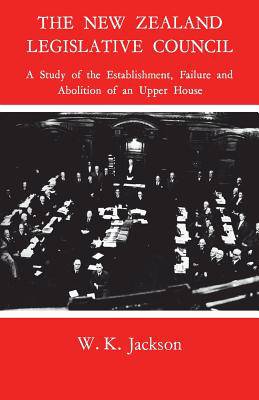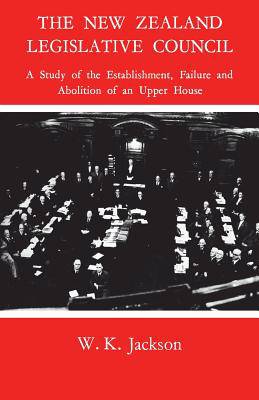
- Retrait gratuit dans votre magasin Club
- 7.000.000 titres dans notre catalogue
- Payer en toute sécurité
- Toujours un magasin près de chez vous
- Retrait gratuit dans votre magasin Club
- 7.000.0000 titres dans notre catalogue
- Payer en toute sécurité
- Toujours un magasin près de chez vous
The New Zealand Legislative Council
A Study of the Establishment, Failure and Abolition of an Upper House
William JacksonDescription
The New Zealand upper house, the Legislative Council (which bore a marked resemblance to its Canadian counterpart the Federal Senate) was abolished in 1950 in an action which represents one of the most clear-cut examples of pragmatic politics in New Zealand history. It was abolished by the essentially conservative National party (fundamentally committed to the bicameral principle), while the Labour party (formally committed to abolition) at first obstructed and then merely stood on the sidelines. New Zealand thus became the only democratic country in the world without either an upper house or a formal written constitution of any consequence. The author attempts both to explain this unusual development and to assess its consequences.
The generally accepted view that the Legislative Council failed in 1892 is challenged, and the causes of the decline and failure are traced back to circumstances surrounding its original establishment in 1854. Subsequently, developments since 1950 are examined in the light of abolition. The author concludes that abolition represented the right policy undertaken for the wrong reasons and that ultimately it has made a greater contribution to constitutional change in the twenty years since 1950 than the chamber itself made in the last fifty years of its existence.
The New Zealand Legislative Council, an analytical historical study of an institution, throws valuable light on the strengths and weaknesses of the bicameral principle and the consequences of abolishing a second chamber of Parliament.
The book should prove useful to Political Science and History courses dealing with Commonwealth Parliamentary government, comparative institutions and constitutional law. It should also appeal to all those interested in the question of bicameral representation.
Spécifications
Parties prenantes
- Auteur(s) :
- Editeur:
Contenu
- Nombre de pages :
- 276
- Langue:
- Anglais
- Collection :
Caractéristiques
- EAN:
- 9781487591984
- Date de parution :
- 15-12-72
- Format:
- Livre broché
- Format numérique:
- Trade paperback (VS)
- Dimensions :
- 140 mm x 216 mm
- Poids :
- 322 g

Les avis
Nous publions uniquement les avis qui respectent les conditions requises. Consultez nos conditions pour les avis.






